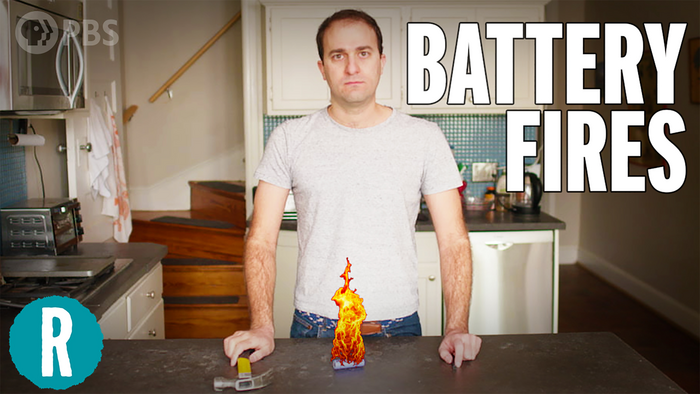WASHINGTON, March. 6, 2023 — Electric vehicles don’t catch fire often, but when they do, things get spicy. How do these fires start? And why are they so hard to put out? There are scientists trying to answer these questions, but there are also scientists still trying to figure out what actually happens (chemically) when a lithium-ion battery catches fire. Can we solve this problem without fully understanding what’s going on? https://youtu.be/jQZK0z7xYuQ

Credit: The American Chemical Society
WASHINGTON, March. 6, 2023 — Electric vehicles don’t catch fire often, but when they do, things get spicy. How do these fires start? And why are they so hard to put out? There are scientists trying to answer these questions, but there are also scientists still trying to figure out what actually happens (chemically) when a lithium-ion battery catches fire. Can we solve this problem without fully understanding what’s going on? https://youtu.be/jQZK0z7xYuQ
Reactions is a video series produced by the American Chemical Society and PBS Digital Studios. Subscribe to Reactions at http://bit.ly/ACSReactions and follow us on Twitter @ACSReactions.
The American Chemical Society (ACS) is a nonprofit organization chartered by the U.S. Congress. ACS’ mission is to advance the broader chemistry enterprise and its practitioners for the benefit of Earth and all its people. The Society is a global leader in promoting excellence in science education and providing access to chemistry-related information and research through its multiple research solutions, peer-reviewed journals, scientific conferences, eBooks and weekly news periodical Chemical & Engineering News. ACS journals are among the most cited, most trusted and most read within the scientific literature; however, ACS itself does not conduct chemical research. As a leader in scientific information solutions, its CAS division partners with global innovators to accelerate breakthroughs by curating, connecting and analyzing the world’s scientific knowledge. ACS’ main offices are in Washington, D.C., and Columbus, Ohio.
To automatically receive news releases from the American Chemical Society, contact [email protected].
Follow us: Twitter | Facebook | Instagram




